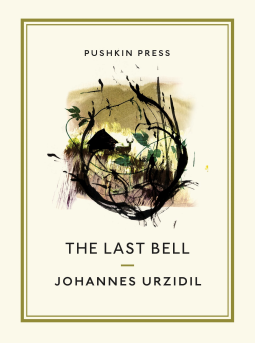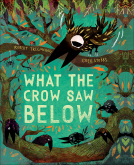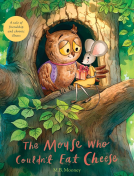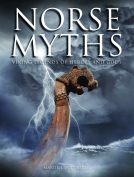
The Last Bell
by Johannes Urzidil
This title was previously available on NetGalley and is now archived.
Send NetGalley books directly to your Kindle or Kindle app
1
To read on a Kindle or Kindle app, please add kindle@netgalley.com as an approved email address to receive files in your Amazon account. Click here for step-by-step instructions.
2
Also find your Kindle email address within your Amazon account, and enter it here.
Pub Date Apr 25 2017 | Archive Date Feb 16 2017
Pushkin Press | Pushkin Collection
Description
Available Editions
| EDITION | Other Format |
| ISBN | 9781782272397 |
| PRICE | $18.00 (USD) |
| PAGES | 192 |
Featured Reviews
 John L, Reviewer
John L, Reviewer
A strong four – while a few of these stories did show signs of liberally edited modernism, where the author is allowed to just go off on one, generally the writing here is very good. The title story is a brilliant evocation of a moral issue forced by consorting with the enemy, in this case invading Nazi troops. Generally the works hark back to rural times, though, or Bohemia almost as seen in Kafka's tales. I don't know that Urzidil will ever be such a household name, but the time is right on this evidence to get a lot more translated into English, for the pleasures he gave his audience certainly found an appreciative reader here. We're well served by a fine introduction and this sampler, but to only have these five instances of his output in English is actually annoying.
 Annie S, Librarian
Annie S, Librarian
Pushkin Press continues to do sterling work by retranslating and republishing European fiction with Johannes Urzidil’s The Last Bell (translated by David Burnett). The Last Bell includes five stories by a mid-century Czech author who got lost in the shuffle of history. In these stories, Urzidil writes about life in Prague in the late 1930s (before he himself fled Europe) and in the old Austro-Hungarian Empire before World War I.
The first story is the eponymous “The Last Bell,” my favorite story in the collection. The story opens with housekeeper Marška being left in charge of her employers’ apartment for the foreseeable future. The master and missus are Jewish and the Germans are on their way. So, Marška decides to live it up on their wealth with her sister in the luxury apartment. Things go well, until the sisters start to fraternize with their new Nazi occupiers. The story starts with pathos but takes a completely different tone of horror by the end.
Another stand out story is “The Duchess of Albanera,” in which a lonely bank manager steals a famous painting. The bank manager keeps the Duchess in an armoire and talks to her. Meanwhile, his acquaintances notice the slight changes in his routine and wonder what’s going on. What makes the story interesting is that the Duchess talks back to the bank manager, questioning him about his ideals of women and reminding him that reality is usually a lot more sordid than his imaginings.
The other three stories feel less polished than “The Last Bell” and “The Duchess of Albanera.” Thought it might be because Urzidil’s style grew less concrete and more experimental and impressionistic over time. The last three stories feel like drifting through time and space; they could have been set almost anywhere and any-when. That said, the stories of The Last Bell offer an interesting peek into a vanished European world.
I received a free copy of this book from NetGalley for review consideration.
Readers who liked this book also liked:
Nigel Henbest; Simon Brew; Sarah Tomley; Ken Okona-Mensah; Tom Parfitt; Trevor Davies; Chas Newkey-Burden
Entertainment & Pop Culture, Humor & Satire, Nonfiction (Adult)
Sara T. Behrman
Children's Fiction, Outdoors & Nature, Parenting & Families


















